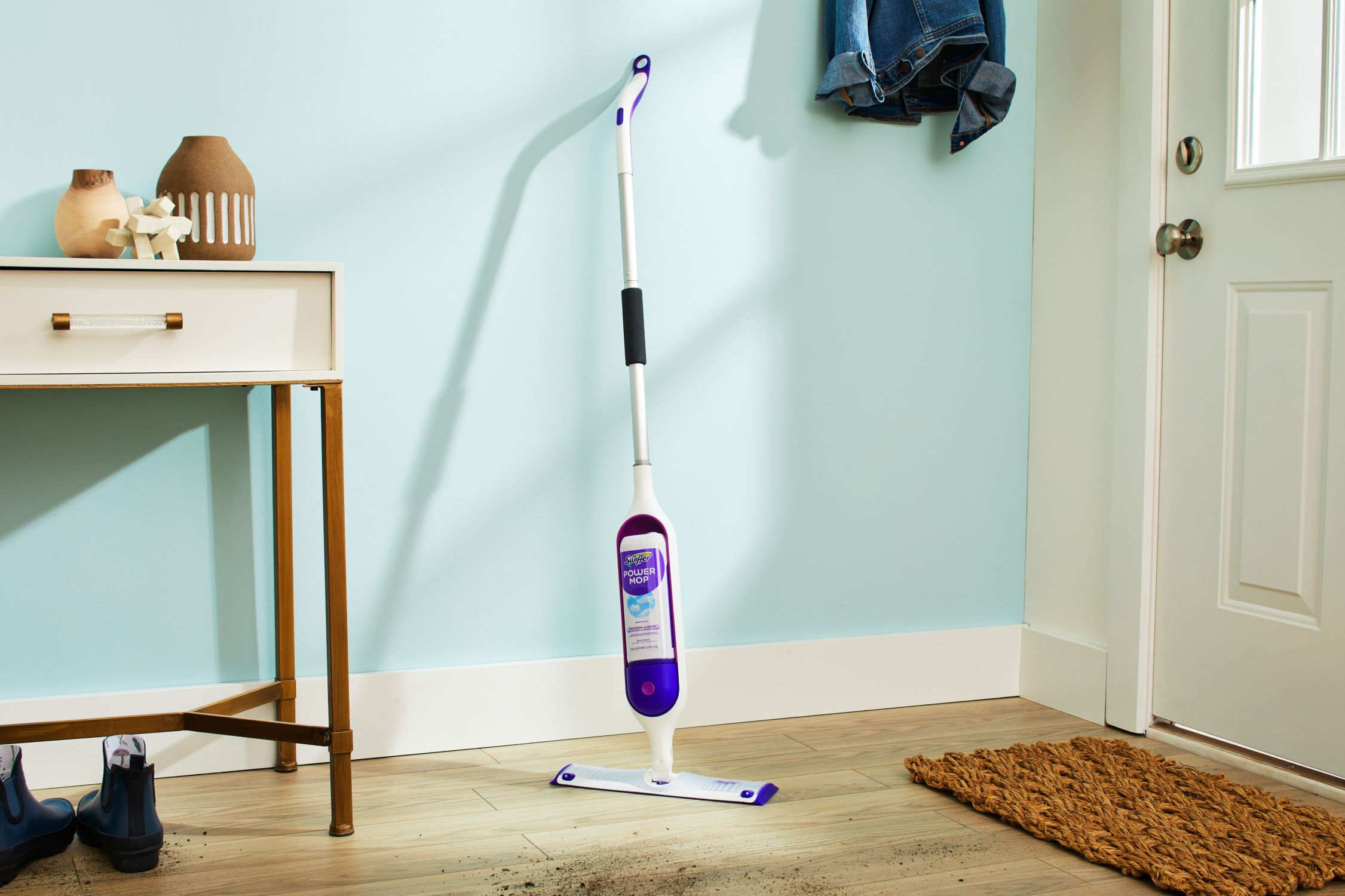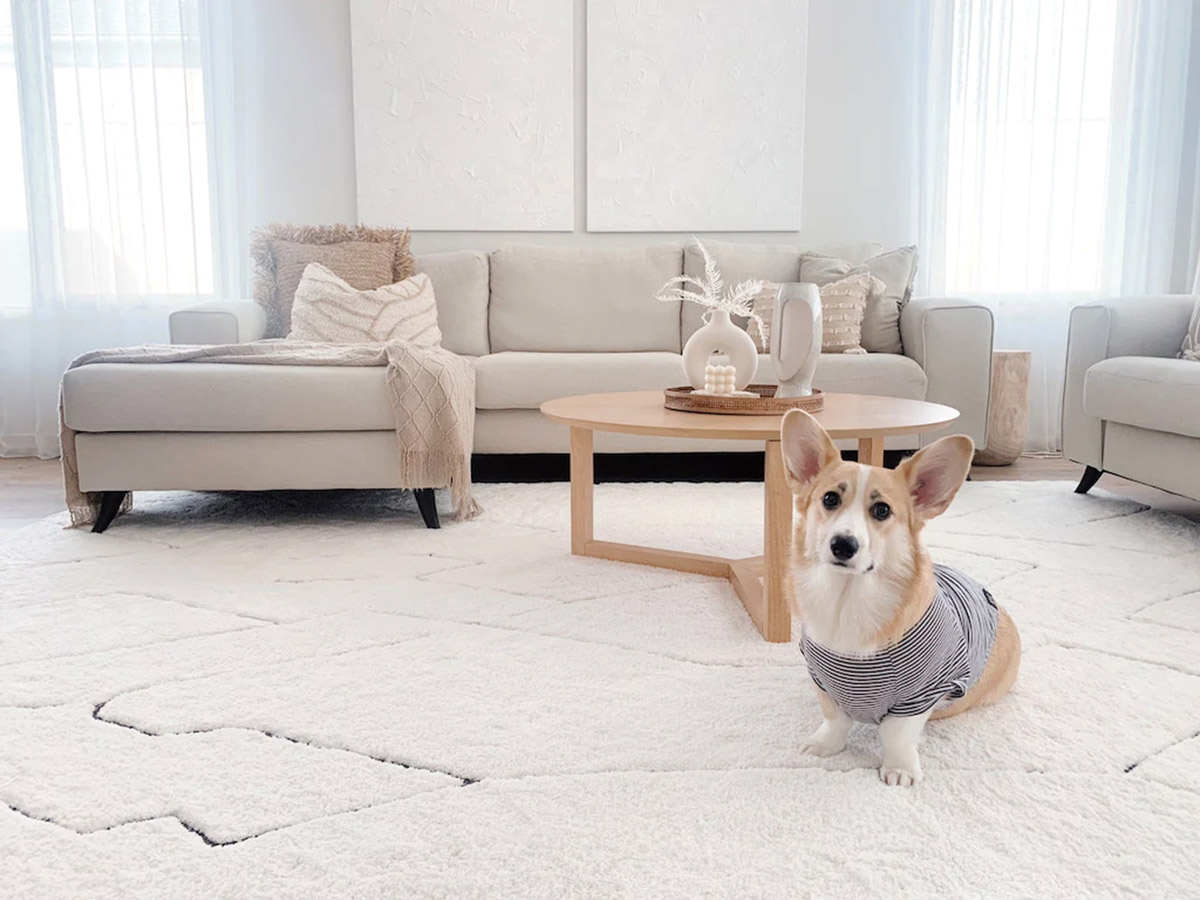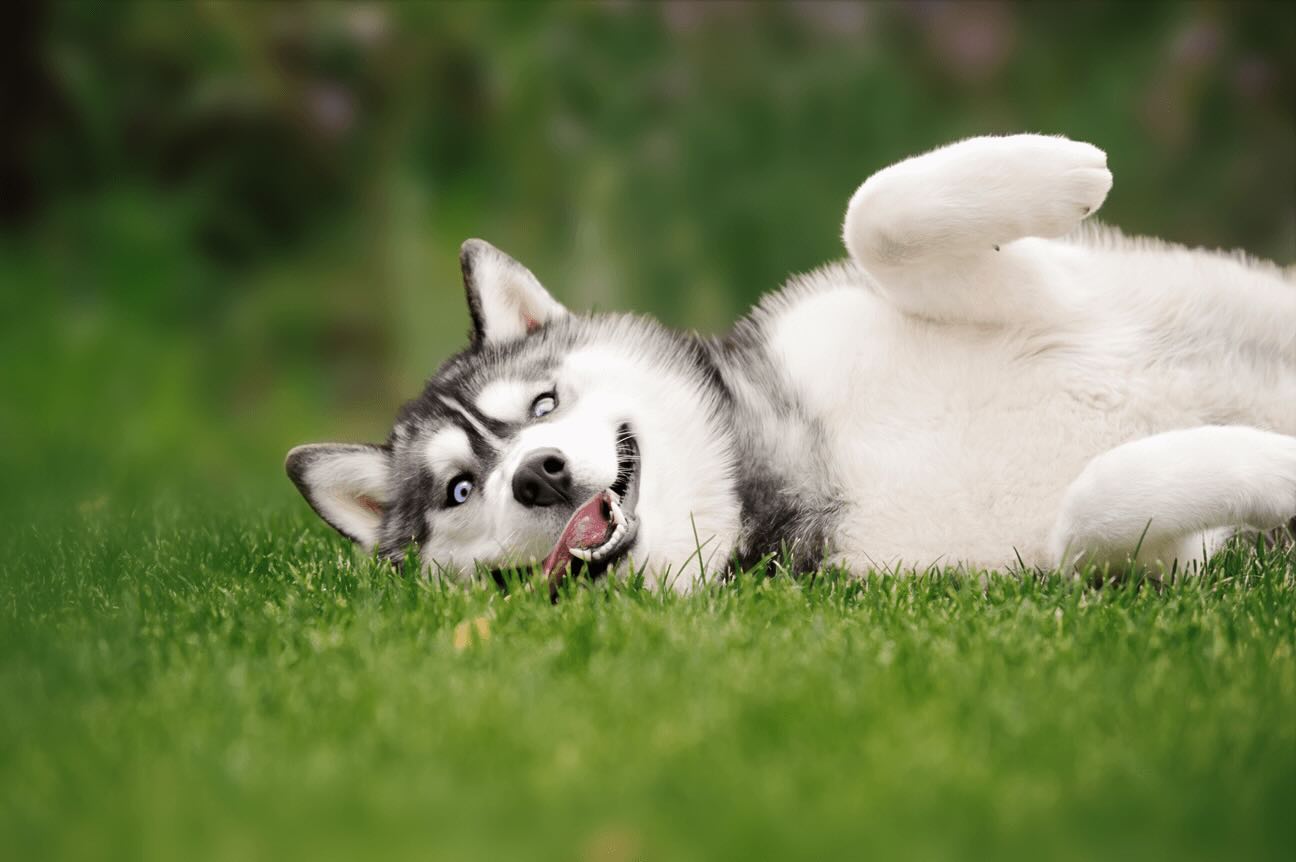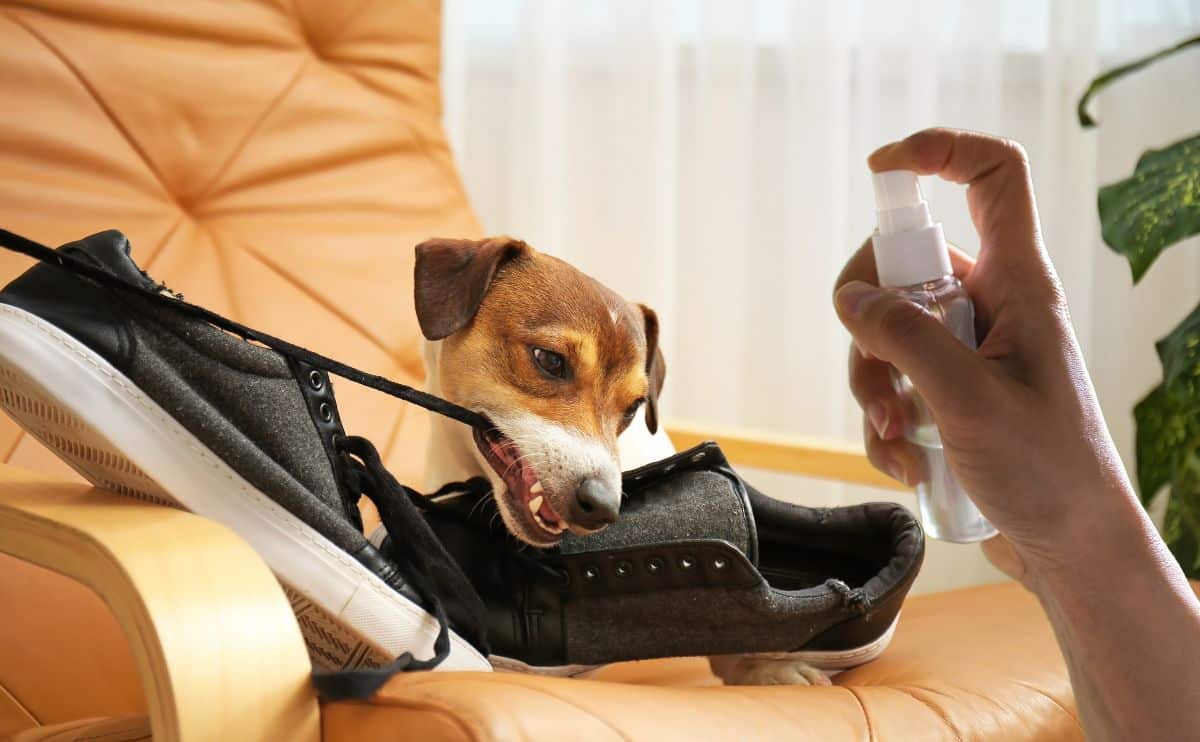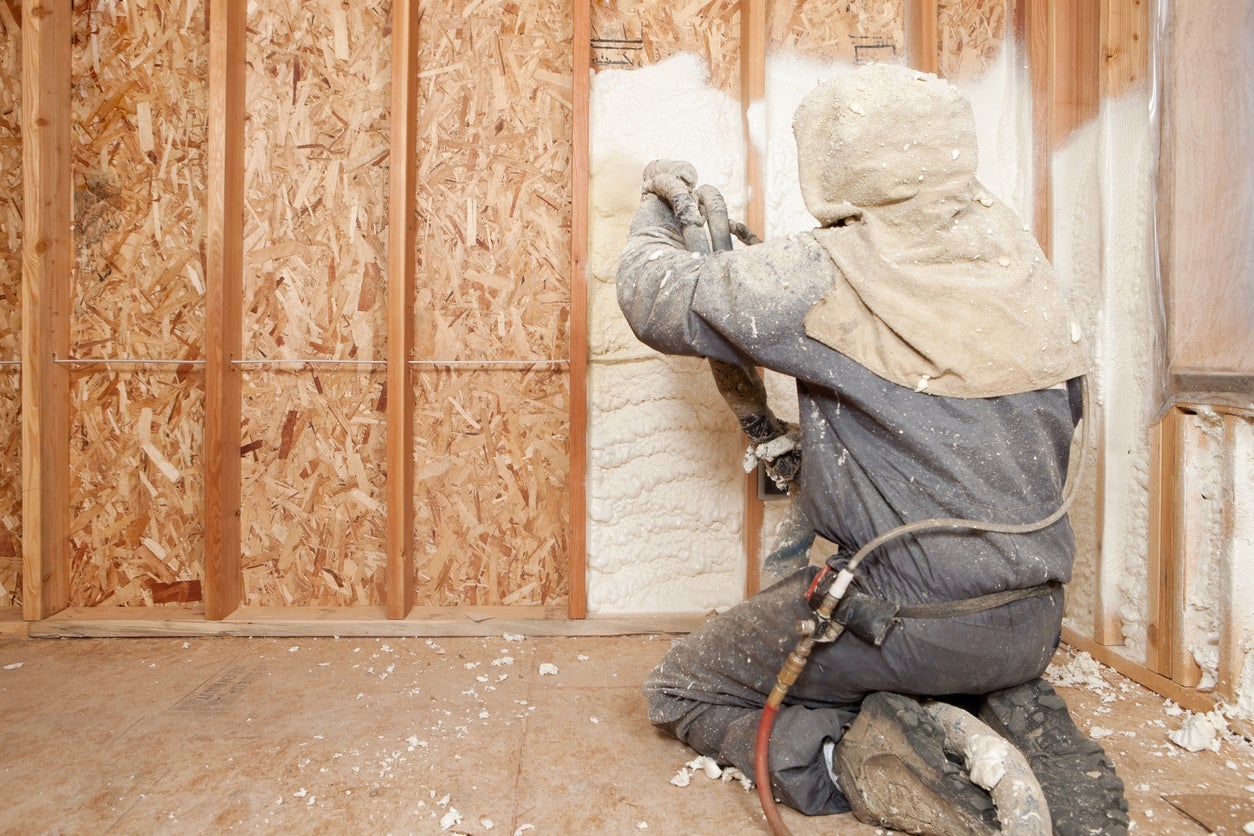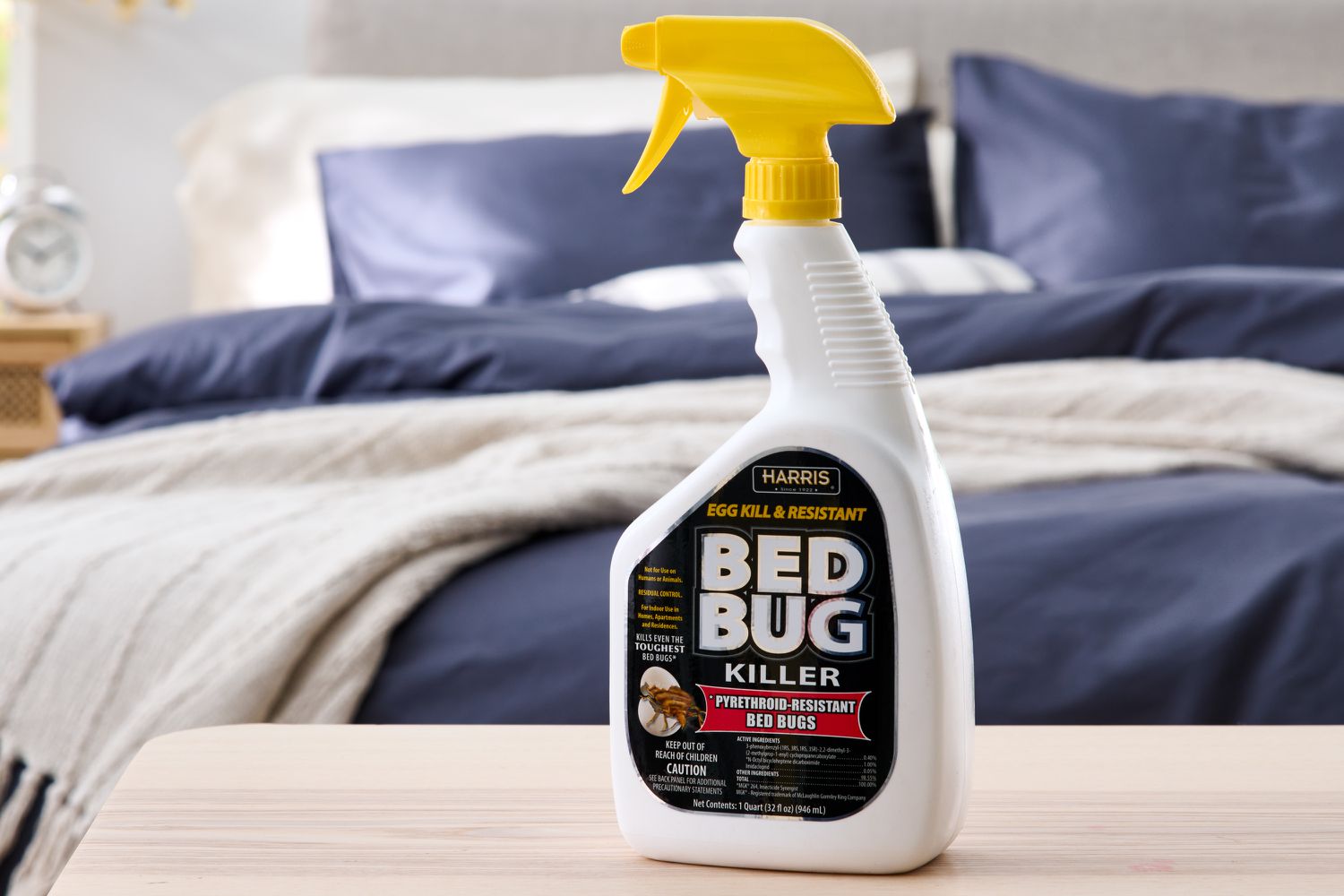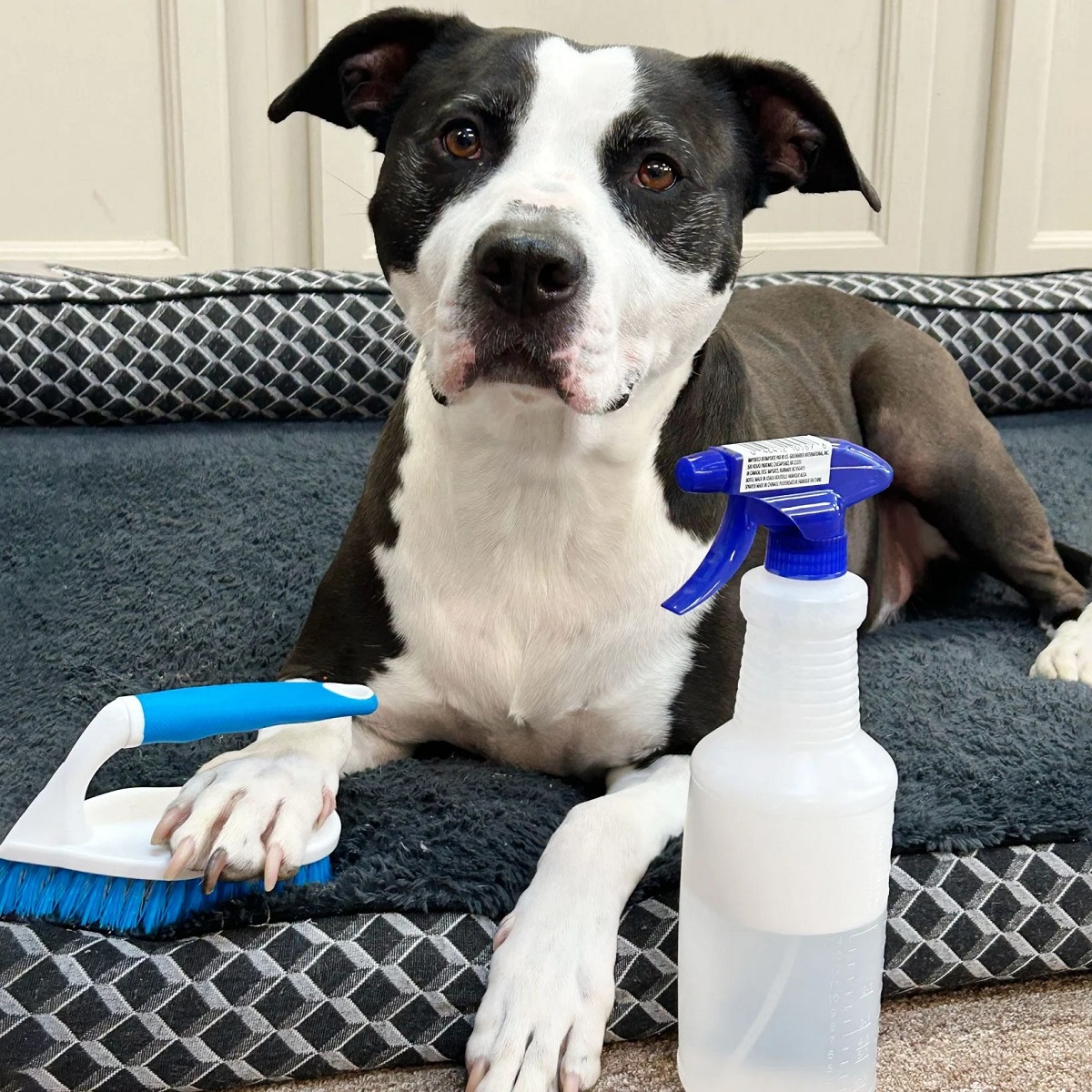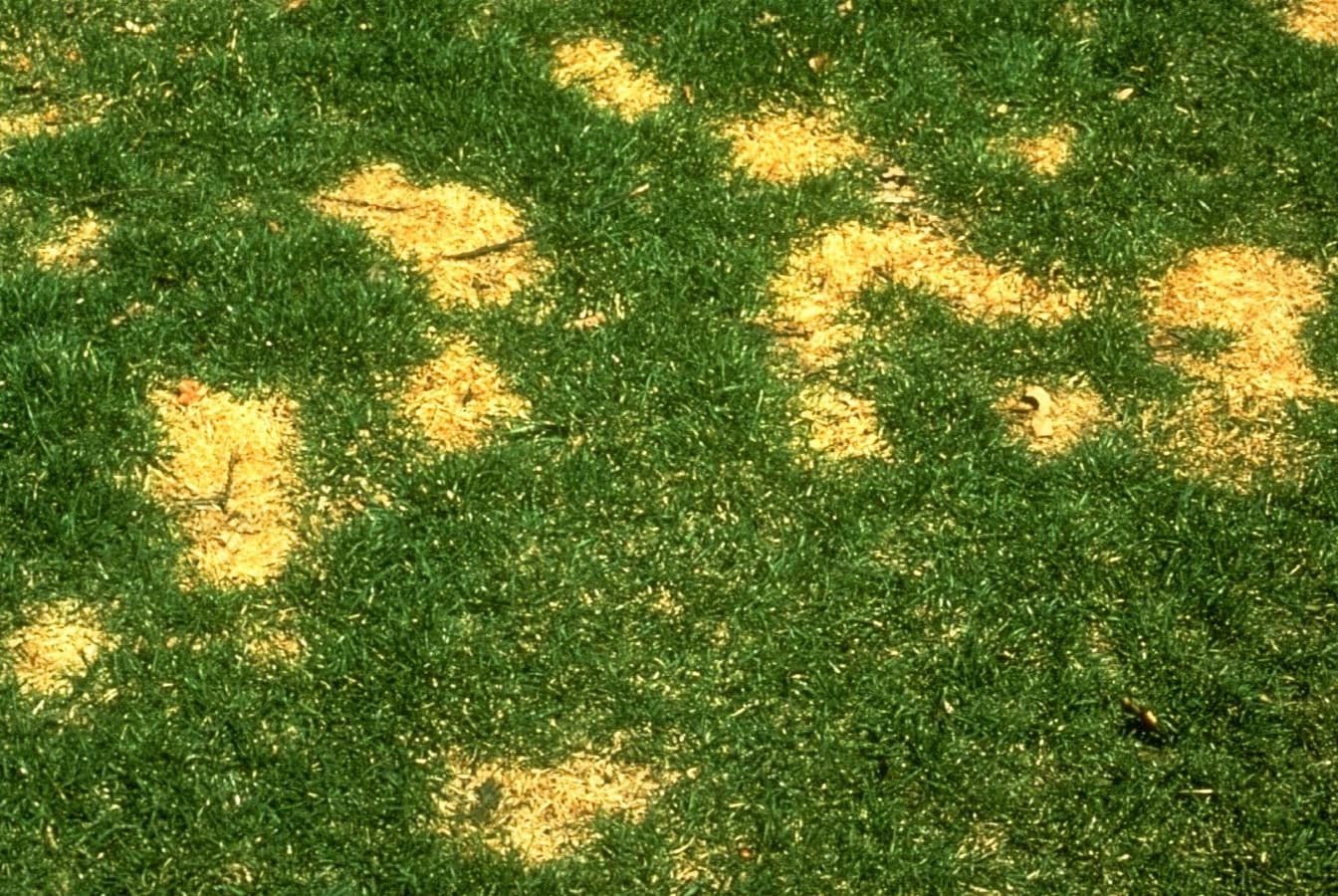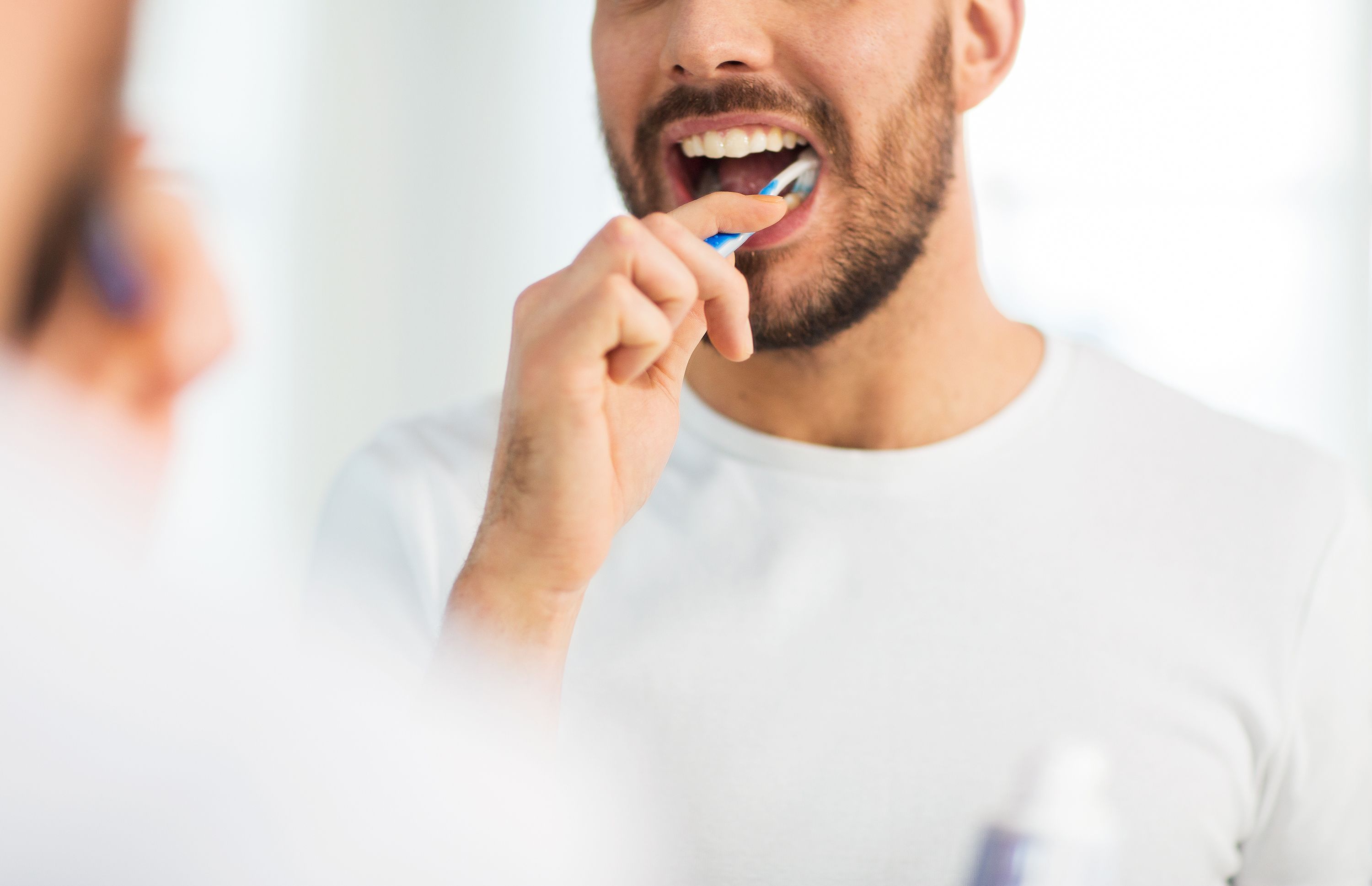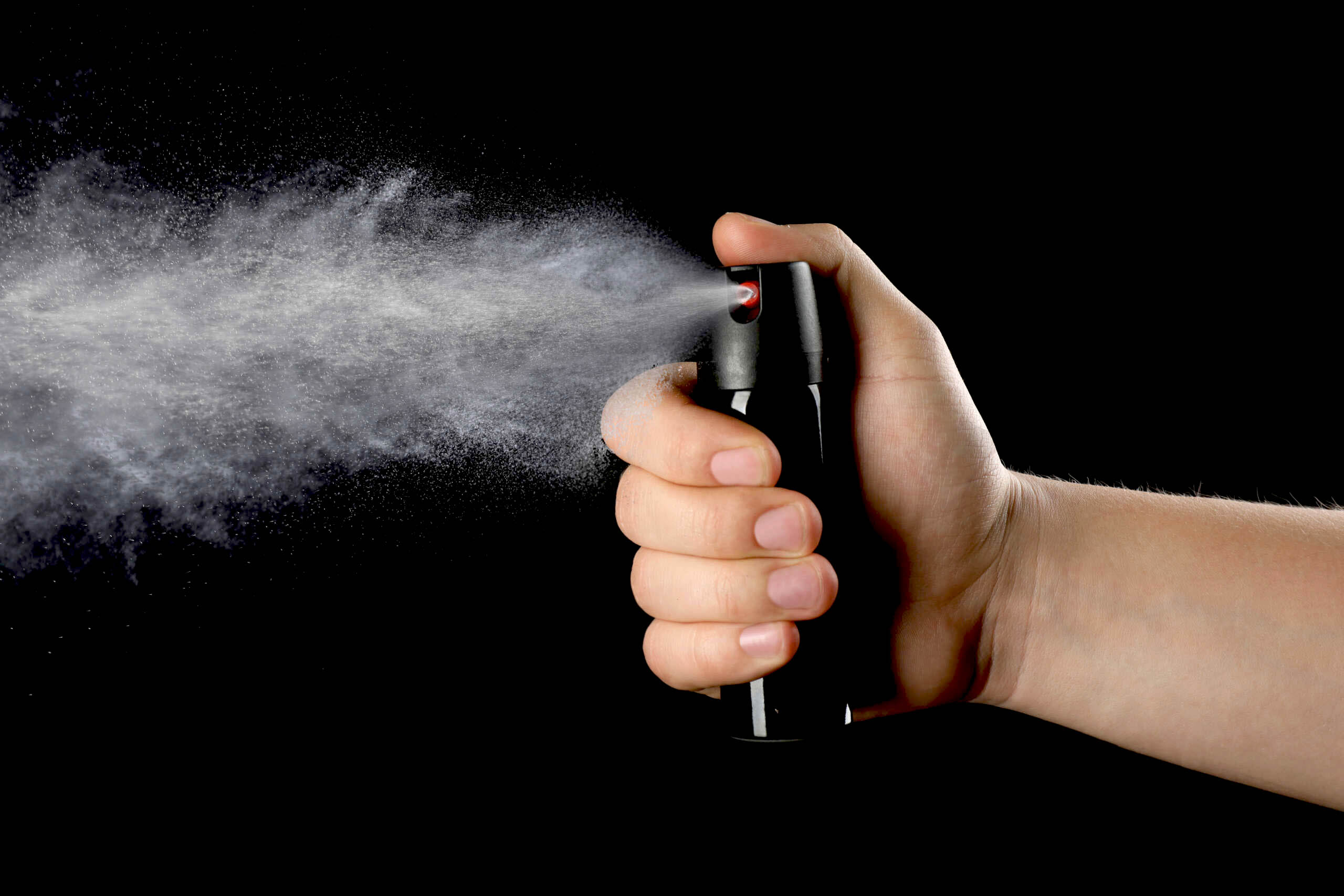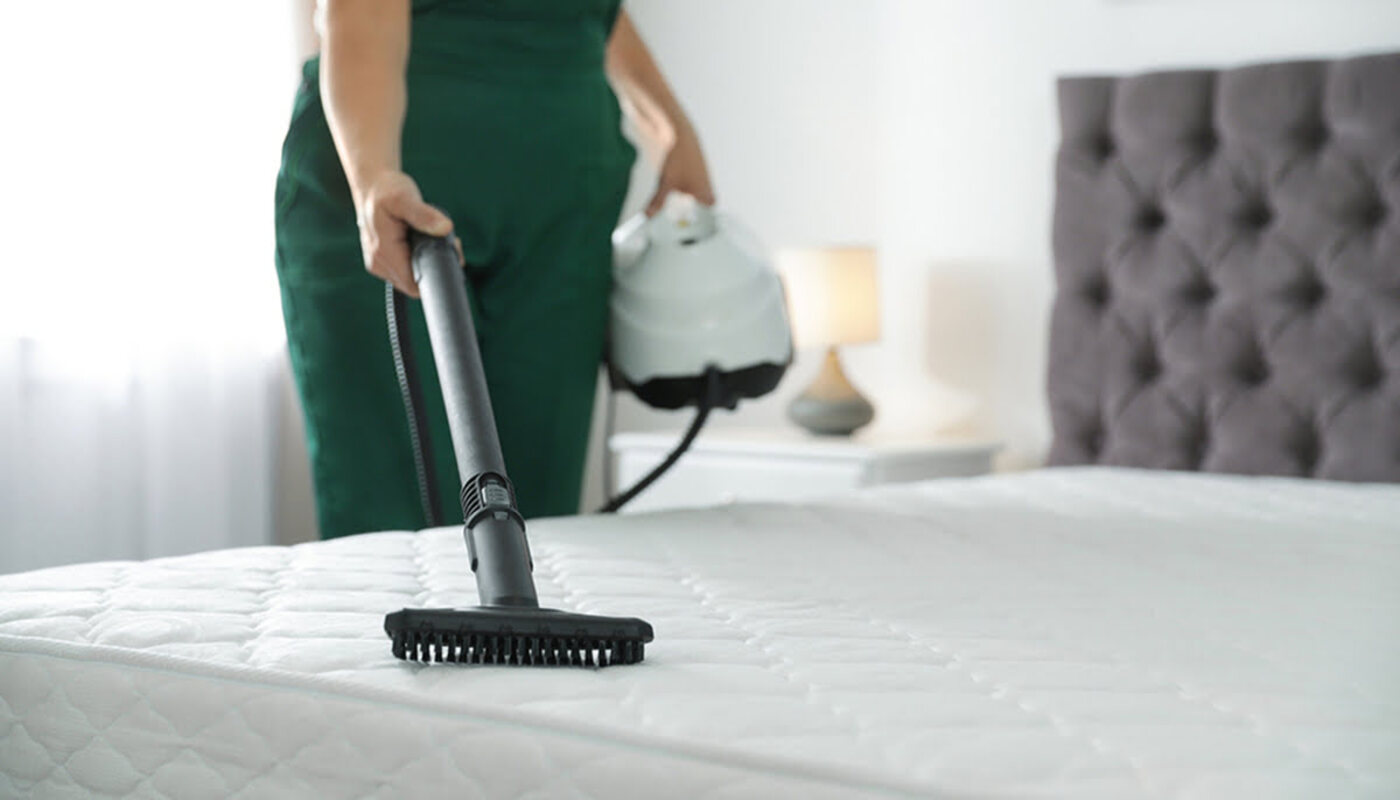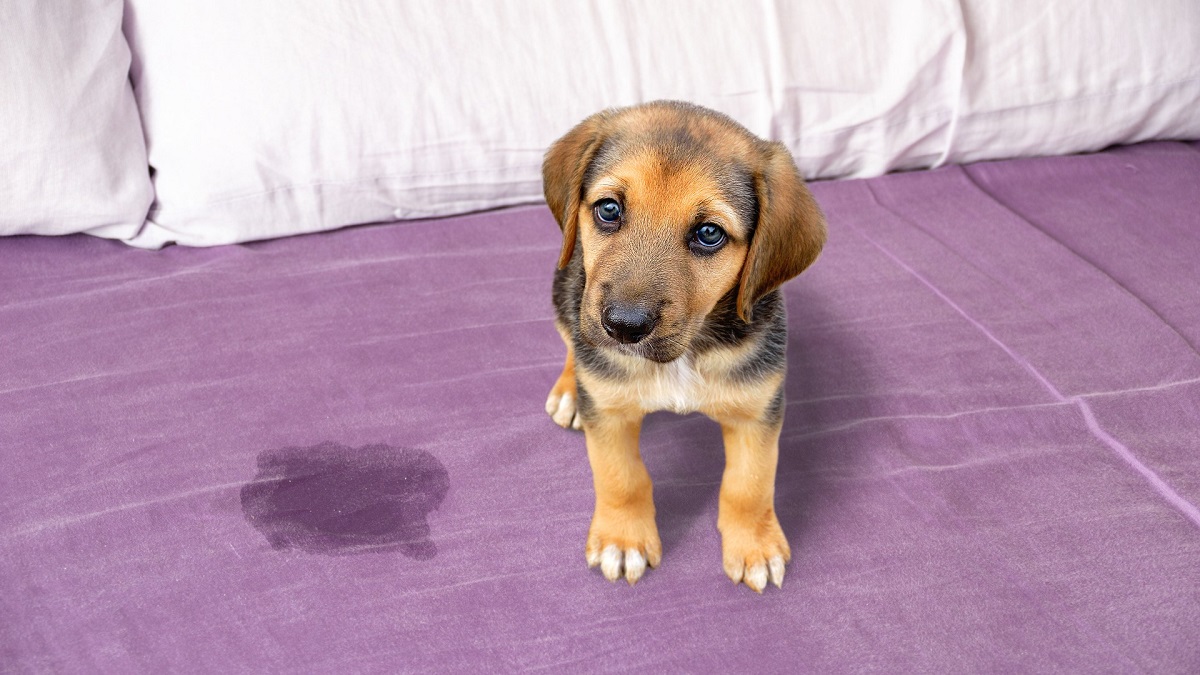Home>Furniture>Bedroom Furniture>What Can I Spray On A Dog Bed To Stop Chewing
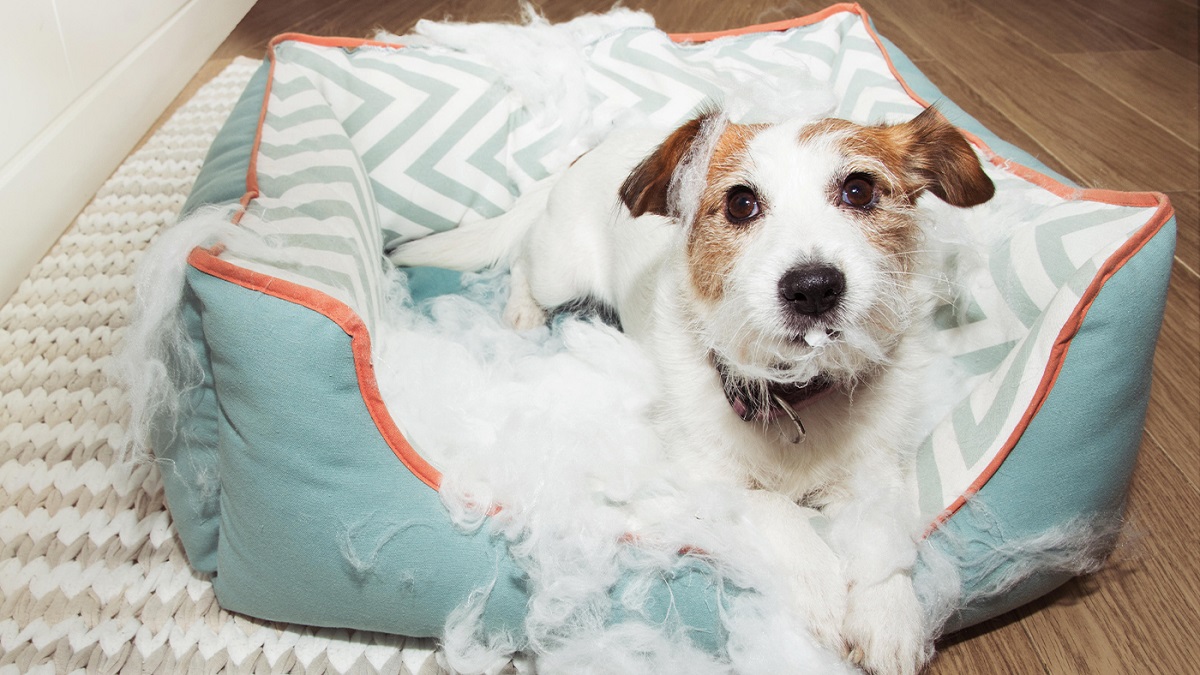

Bedroom Furniture
What Can I Spray On A Dog Bed To Stop Chewing
Modified: December 14, 2023
Protect your bedroom furniture from your furry friend's chewing habits with our effective dog bed spray. Prevent damage and keep your dog's bed intact.
(Many of the links in this article redirect to a specific reviewed product. Your purchase of these products through affiliate links helps to generate commission for Storables.com, at no extra cost. Learn more)
Introduction
Dog owners know that our furry friends can sometimes exhibit behaviors that can be frustrating and challenging to deal with. One of these behaviors is chewing, which can be especially destructive when it comes to our beloved pet’s bed.
Chewing on a dog bed can not only lead to damage and costly replacements but also pose potential hazards to our furry companions. Thankfully, there are effective ways to address this behavior and protect both our dog’s well-being and our investment in their comfort.
In this article, we will explore the reasons behind chewing behavior in dogs, the potential dangers it can pose, and most importantly, the various solutions available to prevent chewing on dog beds. Whether you opt for homemade remedies, commercial anti-chew sprays, natural alternatives, or training techniques, we have got you covered.
So, let’s dive in and find out how we can put an end to the chewing dilemma and ensure our dog’s bed remains a safe and comfortable space for them to relax and sleep on.
Key Takeaways:
- Protect your dog’s bed from chewing with non-toxic solutions like homemade bitter apple spray, commercial anti-chew sprays, and natural remedies. Consistency and positive reinforcement are key to breaking the chewing habit.
- Understand the reasons behind your dog’s chewing behavior and address them with training techniques. Provide appropriate chew toys and prioritize your dog’s well-being with safe, non-toxic materials for their bed.
Read more: How To Stop Dogs From Chewing On Furniture
Understanding the Reasons Behind Chewing Behavior in Dogs
Chewing is a natural behavior for dogs, and understanding the reasons behind it can help us address the issue effectively. Here are some common reasons why dogs may chew on their beds:
- Teething: Puppies, especially, may chew on their beds during the teething stage when their adult teeth are growing in and their gums are sore. Chewing helps alleviate the discomfort they experience.
- Boredom or lack of stimulation: Dogs that are left alone for long periods without mental or physical stimulation may resort to chewing as a way to relieve boredom or release pent-up energy.
- Anxiety or stress: Dogs may chew on their beds as a coping mechanism when they are feeling anxious, stressed, or experiencing separation anxiety. Chewing helps them release tension and can become a self-soothing behavior.
- Exploration and curiosity: Dogs, especially puppies, use their mouths to explore and learn about their environment. Chewing on their bed can be a way for them to investigate their surroundings and satisfy their curiosity.
- Dental issues: Dogs with dental problems, such as gum disease or toothaches, may chew on their beds to alleviate the discomfort in their mouths.
It’s important to identify the underlying cause of the chewing behavior before implementing solutions. This can help us address the root of the issue and find the most effective ways to prevent chewing on dog beds.
Potential Hazards of Chewing on Dog Beds
Chewing on dog beds may seem harmless at first, but there are potential hazards that should not be overlooked. Here are some risks associated with this behavior:
- Ingestion of harmful materials: Dog beds are often made with various materials, including foam, fabrics, and stuffing. If a dog tears and ingests these materials, it can lead to digestive issues, blockages, or even choking hazards.
- Damage to teeth and gums: Aggressive chewing on hard surfaces can lead to dental problems such as broken teeth, damaged gums, and oral pain. This can result in discomfort and costly dental treatments.
- Exposure to toxic substances: Some dog beds are treated with chemicals or have finishes that can be toxic if chewed on. This can pose serious health risks to our furry friends, including poisoning and allergic reactions.
- Financial implications: Constant chewing on dog beds can lead to the need for frequent replacements, resulting in additional expenses for dog owners. Investing in a durable and chew-resistant dog bed can help mitigate this issue in the long run.
- Behavioral reinforcement: If chewing on the dog bed is not addressed, it can become a reinforced behavior, making it more difficult to redirect or eliminate in the future. It’s crucial to intervene and train dogs to avoid chewing on their beds.
Considering these potential hazards, it’s essential to take proactive measures to prevent chewing on dog beds and keep our pets safe and healthy.
Non-Toxic Solutions to Deter Chewing on Dog Beds
When it comes to preventing chewing on dog beds, there are several non-toxic solutions that can be effective in discouraging this behavior. These solutions provide a safe alternative to protect both your dog and their bed. Here are a few non-toxic options to consider:
- Bitter Apple spray: Bitter Apple spray is a common deterrent for dogs as it has a bitter taste that discourages them from chewing. Simply spray the Bitter Apple solution onto the bed according to the manufacturer’s instructions. The taste, although harmless, is unpleasant for dogs and can effectively deter them from chewing.
- Chew deterrent sprays: There are various chew deterrent sprays available on the market that are specifically designed to discourage dogs from chewing. These sprays usually have a bitter taste or an odor that is unappealing to dogs. Make sure to choose a non-toxic and pet-safe spray and apply it to the dog bed as directed.
- Aluminum foil or double-sided tape: Dogs often dislike the texture and sound of aluminum foil or sticky surfaces like double-sided tape. Covering the bed with aluminum foil or applying double-sided tape to the edges can deter dogs from chewing by creating an unpleasant sensation when they come into contact with the surface.
- Physical barriers: If your dog tends to chew on their bed when unsupervised, it may be beneficial to restrict access to the bed when you’re not around to monitor them. Use baby gates or create a separate area where your dog can stay when you’re away to prevent them from getting to their bed.
- Provide appropriate chew toys: Chewing is a natural behavior for dogs, so redirecting their chewing instincts towards appropriate chew toys can help satisfy their need to chew. Provide a variety of safe and durable chew toys for your dog to enjoy, and make sure to praise and reward them when they chew on the toys instead of the bed.
Remember, consistency is key when using these non-toxic deterrents. It may take time and patience to break the chewing habit, so be persistent in your approach and provide alternative outlets for your dog’s chewing needs.
Homemade Bitter Apple Spray
Bitter Apple spray is a popular and effective deterrent for dogs who have a habit of chewing on their beds and other belongings. While you can purchase Bitter Apple spray from pet stores, you can also make your own at home using a few simple ingredients. Here’s a recipe for a homemade Bitter Apple spray:
- Ingredients:
- 2 tablespoons of apple cider vinegar
- 1 cup of water
- 1 teaspoon of white vinegar
- Instructions:
- Step 1: Mix the apple cider vinegar and white vinegar in a spray bottle.
- Step 2: Add the water to the spray bottle and shake well to combine the ingredients.
- Step 3: Spray the solution onto your dog’s bed, focusing on the areas that your dog tends to chew.
- Step 4: Allow the bed to dry completely before allowing your dog to use it again.
The sour taste of the apple cider vinegar and white vinegar is unpleasant to dogs, deterring them from chewing on the bed. It is important to note that while this homemade spray is generally safe and non-toxic, some dogs may still be attracted to the taste or odor. Monitor your dog’s reaction and discontinue use if any adverse effects occur.
Remember, the homemade Bitter Apple spray may need to be reapplied periodically, especially after washing the dog bed or if your dog’s chewing behavior persists. Consistency and positive reinforcement are key in training your dog to stop chewing on their bed.
You can try spraying a bitter apple or bitter cherry spray on the dog bed to deter chewing. These sprays have a strong taste that dogs typically dislike, which can help discourage them from chewing on the bed.
Commercial Anti-Chew Sprays for Dog Beds
If homemade solutions aren’t proving effective in deterring your dog from chewing on their bed, you may want to consider using commercial anti-chew sprays. These sprays are specially formulated to discourage chewing behavior and are available in pet stores or online. Here are some popular options to consider:
- Nature’s Miracle No-Chew Deterrent Spray: This spray is designed to deter dogs from chewing on various surfaces, including dog beds. It has a bitter taste and odor that dogs find unappealing, effectively discouraging them from chewing. Simply spray it onto the bed according to the instructions and allow it to dry before allowing your dog near the bed.
- Grannick’s Bitter Apple Original Taste Deterrent: Bitter Apple is a tried and tested brand for deterring dogs from chewing. They offer a taste deterrent spray that is safe for dogs and will deter them from chewing on their beds. Shake the bottle, spray it on the bed, and let it dry before letting your dog access the area.
- PetSafe Ssscat Spray Deterrent: This spray deterrent uses motion-activated sensors to detect when your dog approaches the bed. It then releases a harmless but surprising burst of air, which startles the dog and discourages further chewing behavior. This spray can be an effective solution for dogs who are persistent chewers.
- Emmy’s Best Pet Products Anti-Chew Bitter Spray: This bitter spray is made from natural, pet-safe ingredients and is effective in deterring dogs from chewing on their beds. Apply the spray to the bed, following the instructions on the packaging, and allow it to dry before introducing your dog to the area.
When using commercial anti-chew sprays, it’s essential to carefully follow the instructions provided by the manufacturer. Test a small area of the bed first to ensure there are no adverse reactions or discoloration. It’s also important to note that these sprays may need to be reapplied periodically, especially after washing the dog bed or if your dog’s chewing behavior persists.
Remember, while these sprays can be effective in deterring chewing behavior, it’s vital to address the underlying cause of the chewing and provide appropriate outlets for your dog’s chewing needs, such as chew toys and interactive playtime.
Natural Remedies to Prevent Chewing on Dog Beds
If you prefer to use natural remedies to deter your dog from chewing on their bed, there are several options available. These remedies are safe, non-toxic, and can help discourage your dog from engaging in destructive chewing behaviors. Here are some natural remedies to consider:
- Citrus spray: Dogs tend to dislike the scent of citrus fruits. Create a natural citrus spray by mixing equal parts of water and freshly squeezed lemon or orange juice in a spray bottle. Lightly mist the bed with the citrus spray. The smell will deter your dog from chewing on the bed.
- Peppermint or lavender oil: Dogs also dislike the strong scent of peppermint or lavender oil. Dilute a few drops of essential oil in water and spray it on the bed. The aroma will discourage chewing and provide a calming effect for your dog.
- Cayenne pepper spray: Dogs have a sensitive sense of smell, and cayenne pepper has a strong scent that dogs dislike. Mix a tablespoon of cayenne pepper with water and pour the solution into a spray bottle. Spray the bed lightly with the cayenne pepper spray. Be cautious with this remedy, as some dogs may be more sensitive to the pepper than others.
- Vinegar solution: Dogs generally dislike the smell and taste of vinegar. Mix equal parts of white vinegar and water in a spray bottle. Spray the solution onto the bed, focusing on the areas that your dog tends to chew. The vinegar odor will deter your dog from chewing.
- Herbal deterrents: Some herbs, such as rosemary, thyme, or chamomile, can have a repellent effect on dogs due to their strong scents. Consider placing dried herbs or sachets around the bed or infusing them into a spray to discourage chewing.
Remember to test these natural remedies on a small area of the bed first to ensure that they do not stain or damage the fabric. Additionally, reapply the remedies periodically or after washing the bed to maintain their effectiveness.
While natural remedies can be effective in deterring chewing, it’s important to address the underlying cause of the chewing behavior and provide appropriate outlets for your dog’s chewing needs, such as chew toys or interactive playtime.
Training Techniques to Discourage Chewing Behavior
Training is a vital component in addressing and eliminating chewing behavior in dogs. By using appropriate training techniques, you can redirect your dog’s chewing instincts and teach them what is acceptable to chew on. Here are some effective training techniques to discourage chewing behavior:
- Positive reinforcement: Use positive reinforcement techniques to reward your dog for appropriate chewing behavior. Whenever you catch your dog chewing on their toys instead of their bed, praise them and give them a treat. This positive association will encourage them to choose the right items to chew on.
- Redirect and substitute: When you catch your dog chewing on their bed, redirect their attention to an appropriate chew toy. Offer the toy as a substitute and engage your dog in play. This teaches them that chewing on the toy is more rewarding and enjoyable than chewing on the bed.
- Supervision and containment: Keep a close eye on your dog, especially when they are around their bed. If you cannot directly supervise them, confine them to a safe and dog-proofed area where they can’t access their bed. This prevents them from practicing the unwanted chewing behavior unsupervised.
- Provide plenty of chew toys: Make sure to provide a variety of safe and durable chew toys for your dog. Offer toys with different textures, shapes, and sizes to keep them engaged. Rotate the toys regularly to keep them interesting and prevent boredom.
- Use deterrents: As mentioned earlier, natural or commercial deterrent sprays can be effective training aids. Apply the sprays to the bed or areas your dog tends to chew, making the experience unpleasant for them. Over time, they will associate the bed with the undesirable taste or smell, and the chewing behavior will decrease.
- Enroll in obedience training: Consider enrolling your dog in obedience classes or working one-on-one with a professional dog trainer. They can help you address chewing behaviors and provide guidance on effective training techniques to redirect your dog’s destructive chewing tendencies.
Consistency, patience, and positive reinforcement are key when using training techniques to discourage chewing. Remember to remain calm and avoid punishment-based training methods, as these can have negative effects on your dog’s behavior. With time and consistent training, your dog will learn what is appropriate to chew on and develop better habits.
Conclusion
Dealing with chewing behavior on dog beds can be frustrating, but with the right approach, it is possible to prevent this destructive habit. By understanding the reasons behind chewing behavior and the potential hazards it poses, you can take proactive steps to protect your dog and their bed.
There are various non-toxic solutions available, such as homemade bitter apple sprays, commercial anti-chew sprays, and natural remedies. These can effectively deter your dog from chewing and redirect their attention to more appropriate chew toys. Consistency and positive reinforcement are key to successful training, so be patient and reward your dog when they make the right choices.
It’s important to prioritize the well-being of your dog by ensuring their bed is made from safe and non-toxic materials. Consider investing in a chew-resistant dog bed that can withstand their chewing tendencies and reduce the need for frequent replacements.
Remember, chewing is a natural behavior for dogs, and it’s important to address the underlying causes of their chewing. Ensure your dog receives adequate mental and physical stimulation, including interactive playtime and regular exercise, to prevent boredom and anxiety-driven chewing.
If you’ve tried various deterrents and training techniques without success, it may be beneficial to consult with a professional dog trainer or behaviorist. They can provide tailored guidance and help address any underlying behavioral issues contributing to the chewing behavior.
In conclusion, by understanding the reasons for chewing, implementing effective deterrents and training techniques, and addressing the underlying causes, you can help your dog break the habit of chewing on their bed. With patience, consistency, and love, you can provide your furry companion with a safe and comfortable place to rest and relax.
Frequently Asked Questions about What Can I Spray On A Dog Bed To Stop Chewing
Was this page helpful?
At Storables.com, we guarantee accurate and reliable information. Our content, validated by Expert Board Contributors, is crafted following stringent Editorial Policies. We're committed to providing you with well-researched, expert-backed insights for all your informational needs.
